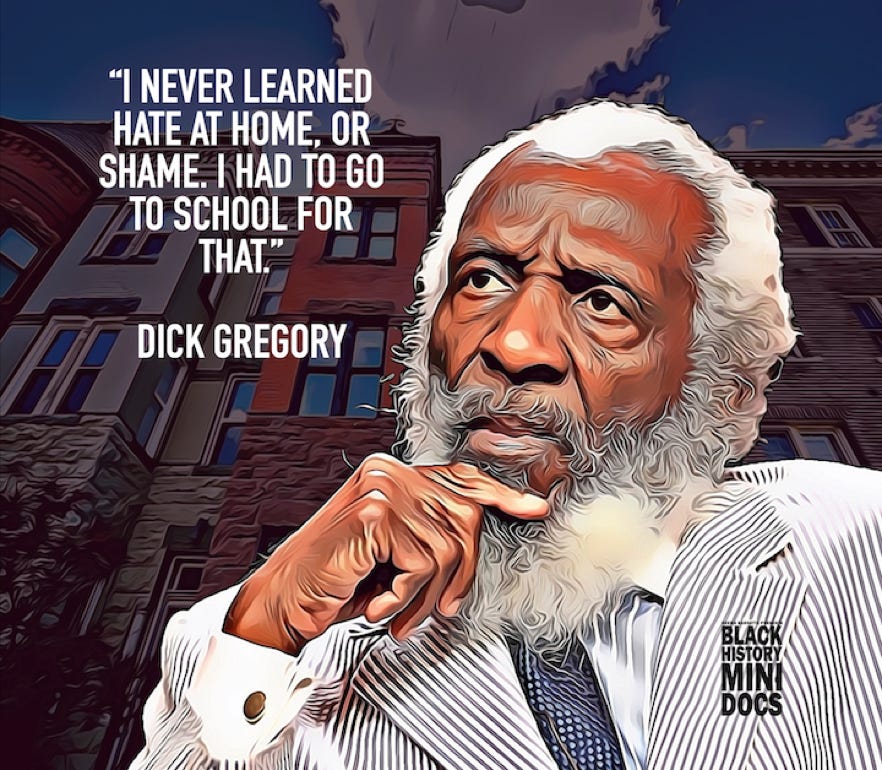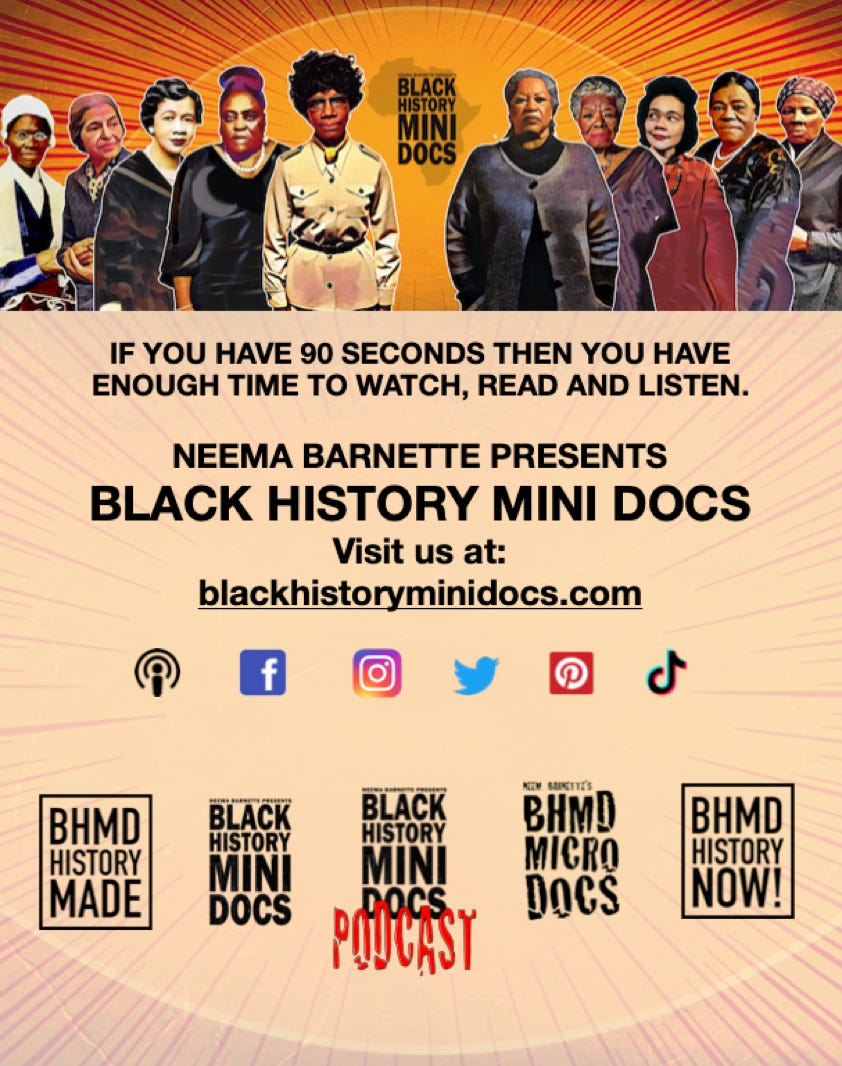

DICK GREGORY
The great Richard Claxton "Dick" Gregory was a comedian, human and social rights activist, nutritionist, writer and entrepreneur. Born in St. Louis, Missouri October 12, 1932, Dick Gregory was an influential comedian who used his comedy to convey to both white and black audiences his political and social messages of human rights. His comedy helped change the way whites perceived black comedians since he first performed in public. #DickGregory
Gregory began his career as a comedian while serving in the military in the mid 1950s. He served in the army at Fort Hood in Texas, Fort Lee in Virginia and Ft. Smith in Arkansas. He was drafted in 1954 while attending Southern Illinois University at Carbondale. After being discharged in 1956 he returned to the university. With a desire to perform comedy professionally, he moved to Chicago.
In the beginning of his career, Gregory experienced his share of failure and success. In 1958, Gregory tried his hand in opening a nightclub called the Apex Club in Illinois. The club failed, landing Gregory in financial hardship. Gregory performed as a comedian in small, primarily black-patronized nightclubs while working for the United States Postal Service during the daytime. However, in 1959, Gregory landed a job as master of ceremonies at the Roberts Show Club.
Gregory was one of the first black comedians to gain widespread acclaim performing for white audiences. When Dick Gregory was starting out, it was nearly unheard of for black comics to perform in white night clubs. In an interview Gregory describes the past role of black comics as limited. "Blacks could sing and dance in the white night clubs but weren't allowed to stand flat-footed and talk to white folks, which is what a comic does."
In 1961, while working at the Black-owned Roberts Show Bar in Chicago, he was spotted by Hugh Hefner. Gregory attributes the launch of his career to Hugh Hefner, who watched him perform at Herman Roberts Show Bar. Hefner hired Gregory to work at the Chicago Playboy Club.
Gregory's first TV appearance was on the late night The Tonight Show Starring Jack Paar. That particular show was known for helping to propel entertainers to the next level of their careers. At the time, black comics were allowed to perform on the show but were not allowed to stay after their performances to sit on the famous couch and talk with the host. Dick Gregory declined the invitation to perform on the show several times until finally Jack Paar called him to find out why he refused to perform on the show. Eventually, in order to have Gregory perform, the producers agreed to allow him to stay after his performance and talk with the host on air. This was a first in the show's history. Dick Gregory's interview on The Tonight Show spurred conversations across America. His interview provided an opportunity for viewers to see an African American in a positive and humane light. He soon began appearing nationally and on television.
Active in the civil rights movement, in 1963, Gregory went to Selma, Alabama and spoke for two hours on a public platform two days before the voter registration drive known as "Freedom Day"). In 1964, Gregory became more involved in struggles for civil rights, activism against the Vietnam War, economic reform, anti-drug issues, conspiracy theories, and others. As a part of his activism, he went on several hunger strikes. In the United States Gregory was one of the first modern spokespersons to suggest that the Census Bureau undercounts minorities, particularly in large cities. In 1966, through a series of fundraisers, he shipped 10,000 pounds of navy beans to Marks, Mississippi, to feed hungry people. In addition, he advocated large families as a way to both counter and protest racism.
Internationally, Gregory was a major leader of the antiwar movement. He traveled to France to protest French involvement in Indo-China and to Northern Ireland to advise Irish Republican Army (IRA) political protesters on techniques for fasting. In his campaign against hunger he traveled to Ethiopia more than ten times. In 1968 the Peace and Freedom Party nominated him as its presidential candidate in recognition of his efforts to make the world a better place.
Dick Gregory was arrested for civil disobedience several times, and his activism spurred him to run for mayor of Chicago in 1966 and for president of the United States in 1968. In the early 1970s Gregory abandoned comedy to focus on his political interests, which widened from race relations to include such issues as violence, world hunger, capital punishment, drug abuse and poor health care. Before Bill Cosby there was Dick Gregory. He is a legend, a pioneer and a hero. We pay respect to the great Dick Gregory. Gregory transcended on August 19, 2017.
- Hendrix Moses for Black History Mini Docs
Copyright Black History Mini Docs Inc. 2026 All Rights Reserved.














